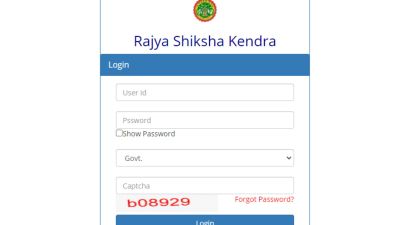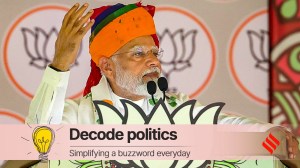- India
- International
In terror funding case, Delhi court says drawing presumptions not based on facts dangerous
The funds were received under the garb of constructing a mosque, the NIA alleged.
 The court said that "there is no reference by any of the accused of any money being sent or to be sent to India or any charitable activities being carried out in India.
The court said that "there is no reference by any of the accused of any money being sent or to be sent to India or any charitable activities being carried out in India.Observing that drawing presumptions not based on facts was dangerous, a Delhi court that recently discharged four men in a terror funding case has said that the National Investigation Agency (NIA) did not make any efforts to find out who made the CD containing conversations to link the accused with a banned terrorist organisation.
On October 21, Special Judge Parveen Singh discharged the four men, Mohd. Salman, Mohd. Saleem, Arif Gulam Bashir Dharampuria and Mohd. Hussain Molani, who were arrested by the NIA for allegedly receiving money from a Pakistani terrorist outfit, Falah-I-Insaniat Foundation (FIF), for attracting a group of sympathisers and sleeper cells to “create unrest in India”.
The funds were received under the garb of constructing a mosque, the NIA alleged.
The contention of the prosecution was that one of the accused, Mohammad Kamran, who is said to be based in Dubai and handles FIF operations, had conspired with Jamat-ud-Dawa (JuD) founder Hafiz Mohammad Saeed to launder money for terror-related activities.
The NIA’s strongest piece of evidence was a CD recovered from Dharampuria, who was alleged to be Kamran’s employee. The CD contained conversations between FIF’s deputy chief Shahid Mahmood and Kamran, which the prosecution sought to establish that they were “closely associated and involved in various illegal activities including transferring money to various countries through Hawala Channel and other illegal channels.”

The prosecution contended that although in the conversation, “there is no mentioning of transfer of any money to India but from the circumstances, it could be safely assumed that if they were transferring money to various countries including Sudan etc.”
The court said that as per Supreme Court directives if the primary source in an electronic record is not produced before the court, then it is only admissible on production of a certificate under 65- B of the Evidence Act.
The court agreed that it is quite possible that prosecution may not be in a position to obtain a certificate. However, it observed, “There is nothing either on record or in submissions that what and if any efforts were made by the NIA to trace or find out the person who prepared this CD…However, at the same time, even the source of this CD is not clear or when it was prepared or the time frame in which it has been prepared.”
The court said that “there is no reference by any of the accused of any money being sent or to be sent to India or any charitable activities being carried out in India. Therefore, even if the contents of the CD are taken in totality, the said CD cannot be used to link money sent by accused no. 3 (Kamran) to India with FIF or Shahid Mahmood.”
The prosecution then raised the contention that “Kamran was working very closely with Mahmood, he should have known that Mahmood was working for FIF and therefore, by his association with Mahmood, a further conclusion can be drawn that money which was being sent by Kamran belonged to FIF.”
To this, the court said that the contention “shows that there are many ‘ifs’ involved before this contention can be accepted and this contention is not based on facts but on presumptions which leads to a final presumption that Kamran was a member of FIF.”
“However, in my considered opinion, for presumptions to be raised, the basis for such presumptions has to emerge on facts. Meaning thereby, it is from a fact that we can move towards a presumption but if the starting point of journey which leads to final presumption is a presumption itself, then drawing the final presumption on the basis of initial presumption is a very dangerous proposition…I accordingly find that the conclusion raised on behalf of Special Public Prosecutor (SPP) fails the test of applying logical, deductive or inductive reasoning to reach at a conclusion that Kamran was a member of FIF,” the court said.
The accused Mohd Salman was represented by advocates Bhavook Chauhan and Soutik Banerjee. Accused Molani and Salim were represented by advocates Tanvir Ahmed Mir and Prabhav Ralli. They had denied the allegations out forward by the NIA arguing that their clients were falsely implicated by the agency.
Apr 23: Latest News
- 01
- 02
- 03
- 04
- 05






































